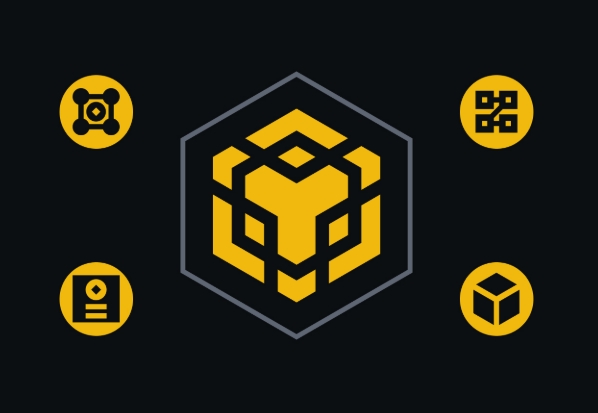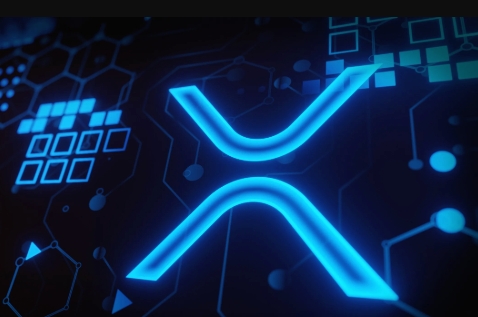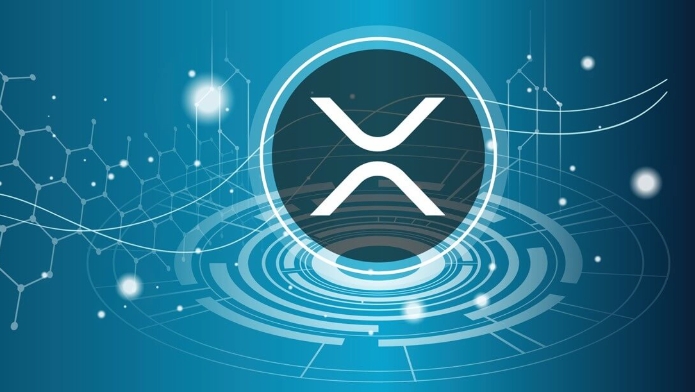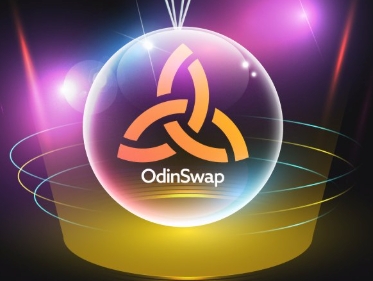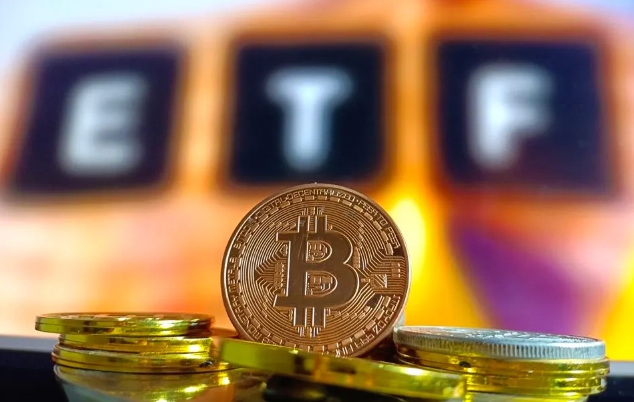 |
|
 |
|
 |
|
 |
|
 |
|
 |
|
 |
|
 |
|
 |
|
 |
|
 |
|
 |
|
 |
|
 |
|
 |
|
Cryptocurrency News Articles
The Ethereum Foundation has abandoned neutrality at the application level. How can we ensure that the supported projects are worth doing?
Feb 20, 2025 at 05:28 pm
How the Ethereum Foundation ensures that the supported projects are worth doing when the application layer abandons neutrality. The key points of the evaluation project are explained in terms of technological innovation, social value, team capabilities, market feasibility, compliance and community ecological adaptation.
Technical Innovation Evaluation
Scalability Solutions: Projects should offer innovative scalability solutions. For example, technologies like sharding can significantly increase the transaction - processing capacity of the Ethereum network. By dividing the blockchain into multiple shards, parallel processing of transactions becomes possible, which can handle a much larger number of transactions per second compared to the current single - chain structure.
Consensus Algorithm Improvement: The consensus algorithm is the core of the blockchain. A project that proposes improvements to the existing proof - of - stake (PoS) algorithm used by Ethereum, such as making it more energy - efficient, resistant to malicious attacks, and reducing the time for block confirmation, is highly valuable. New algorithms might introduce innovative ways of validating transactions and maintaining the integrity of the blockchain ledger.
Interoperability Enhancements: In a multi - chain world, the ability of Ethereum to interact with other blockchains is crucial. Projects that develop protocols for seamless cross - chain communication, asset transfer, and data sharing are worthy of support. For instance, they could enable the transfer of Ethereum - based tokens to other blockchains and vice versa without significant barriers.
Social Value Assessment
Financial Inclusion: Ethereum - based projects that aim to provide financial services to the unbanked and underbanked populations around the world have great social value. This could involve developing decentralized lending platforms that do not require traditional credit checks, allowing people in developing countries or those with limited financial history to access loans.
Environmental Sustainability: With the growing concern about climate change, projects that use blockchain technology to promote environmental sustainability are important. For example, blockchain - based carbon credit trading platforms can accurately track and trade carbon emissions, encouraging companies to reduce their carbon footprint.
Social Justice and Transparency: Projects that promote social justice and transparency, such as decentralized identity systems that protect the privacy of individuals while ensuring fair access to services, are worthy of support. These systems can prevent identity theft and discrimination, especially in sectors like healthcare and employment.
Team Competence Analysis
Technical Expertise: The project team should consist of individuals with in - depth technical knowledge in blockchain development, cryptography, and software engineering. They should have a proven track record of developing successful blockchain - related projects, such as having previously contributed to open - source blockchain projects or developed functional decentralized applications (dApps).
Industry Experience: Team members with industry experience in relevant fields, such as finance for fintech - related projects or supply chain management for supply chain - focused dApps, can better understand the real - world problems and design effective solutions. Their experience can help bridge the gap between the technical world of blockchain and the practical needs of industries.
Vision and Execution: The team must have a clear vision for the project and a well - thought - out execution plan. This includes setting realistic milestones, having a proper resource allocation strategy, and demonstrating the ability to adapt to changing market conditions and technological advancements during the project's development.
Market Viability Research
Market Demand: Thorough market research should be conducted to determine the demand for the project's product or service. For example, if it's a new decentralized e - commerce platform, studies should show whether there is a significant number of consumers and merchants interested in using a blockchain - based alternative to traditional e - commerce platforms, and what their pain points are that the new platform can address.
Competitive Analysis: Analyzing the competition is essential. The project should have a unique selling proposition (USP) compared to existing solutions in the market. For instance, if it's a decentralized storage project, it should offer better features such as higher security, lower cost, or more efficient data retrieval compared to other decentralized storage providers.
Business Model Feasibility: The project's business model must be feasible. This means that it should have a clear revenue - generation mechanism, whether it's through transaction fees, subscription models, or token sales. The revenue model should be sustainable in the long - term and adaptable to different market scenarios.
Regulatory Compliance Consideration
Understanding Regulations: The project team should have a deep understanding of the relevant regulations in different jurisdictions. For example, in the case of a decentralized finance (DeFi) project, they need to be aware of anti - money laundering (AML) and know - your - customer (KYC) regulations, as well as regulations related to financial services and securities.
Compliance Plan: A well - defined compliance plan should be in place. This includes implementing measures to ensure that the project adheres to all necessary regulations, such as implementing proper identity verification mechanisms for users in accordance with KYC requirements, and having procedures in place to prevent money laundering activities on the platform.
Regulatory Adaptability: The project should be designed in a way that it can adapt to changing regulatory environments. As regulations around blockchain technology are constantly evolving, the project should be flexible enough to make the necessary adjustments to remain compliant without sacrificing its core functionality and value proposition.
Community and Ecosystem Fit
Community Engagement: A project that actively engages with the Ethereum community is more likely to succeed. This can be demonstrated through participation in Ethereum - related forums, hackathons, and meetups. The project should also listen to the feedback from the community and incorporate it into the project's development.
Ecosystem Compatibility: The project should be compatible with the existing Ethereum ecosystem. This means that it can integrate well with other Ethereum - based dApps, wallets, and infrastructure. For example, a new decentralized oracle project should be able to provide data to other dApps in a seamless and reliable manner.
Long - term Contribution to the Ecosystem: The project should have the potential to contribute to the long - term growth and development of the Ethereum ecosystem. This could be in the form of creating new tools, protocols, or services that enhance the overall functionality and usability of the Ethereum platform.
Disclaimer:info@kdj.com
The information provided is not trading advice. kdj.com does not assume any responsibility for any investments made based on the information provided in this article. Cryptocurrencies are highly volatile and it is highly recommended that you invest with caution after thorough research!
If you believe that the content used on this website infringes your copyright, please contact us immediately (info@kdj.com) and we will delete it promptly.
-

- From Mt. Gox to Bybit: An in-depth review of cryptocurrency exchange security incidents
- Feb 22, 2025 at 02:54 pm
- An in-depth review of cryptocurrency exchange security incidents from Mt. Gox to Bybit, covering the attack details, hacker methods, stolen assets and capital flows, as well as official responses and subsequent processing, showing the industry's security issues and response measures.
-

- Bybit was stolen for 1.5 billion. Where is the security of the cryptocurrency industry going?
- Feb 22, 2025 at 01:45 pm
- Bybit's monumental $1.5 billion hack has dealt a devastating blow to cryptocurrency security, eroding trust in digital assets and raising concerns about industry-wide inadequacies in regulatory oversight and security measures.
-

- After the Pascal hard fork, there are Lorentz and Maxwell upgrades. What are the differences between them?
- Feb 21, 2025 at 05:25 pm
- In 2025, BNB Chain will carry out Pascal hard fork and Lorentz and Maxwell upgrades, which will have differences in performance and security, and will have a wide impact.
-

- When will the BNB Smart Chain Pascal hard fork upgrade start? Is the mainnet and testnet time the same?
- Feb 21, 2025 at 05:16 pm
- BNB Smart Chain will be upgraded on February 25, the main network will be upgraded in mid-March, and there will be subsequent upgrades in April and June, bringing various functions improvements.
-

- The 21-day public comment period has been triggered. When will the XRP ETF actually be launched?
- Feb 21, 2025 at 05:09 pm
- On February 21, Grayscale XRP and four Solana ETFs applied to be included in the SEC Register. The XRP ETF was approved to have variables, which was affected by multiple factors.
-

- Grayscale XRP ETF application entered into the SEC federal register, what are the prospects for approval?
- Feb 21, 2025 at 05:01 pm
- On February 21, Grayscale XRP ETF and other applications were approved to be affected by multiple factors such as supervision, law, and market, and the prospects have attracted much attention.
-

- The wave of legislation of Bitcoin Strategic Reserves Act is coming, how will traditional finance respond?
- Feb 20, 2025 at 06:13 pm
- The Bitcoin strategic reserve bill is creating a legislative wave in the US. Traditional finance faces disintermediation risk, market share erosion, regulatory dilemmas like compliance complexity and jurisdictional conflicts. Possible responses include innovating financial products, enhancing risk management, and collaborating with fintech to adapt to the new situation.
-

- Why did OdinSwap and Valhalla cease operations? How to ensure the safety of user funds?
- Feb 20, 2025 at 04:12 pm
- On February 20, Bitcoin network rune platforms OdinSwap and Valhalla will be suspended for operations. Due to decline in transactions, competition, etc., users can provide 2.28 prerequisites.
-

- Bitcoin ETF now has net inflows, Ki Young Ju says the bull market will continue until capital outflows, when will the bear market come?
- Feb 20, 2025 at 03:38 pm
- On February 20, Ki Young Ju posted that demand for Bitcoin ETFs has slowed down and the bull market continued to flow out, attracting market attention.















![BONK The Meme Coin MORE THAN ORDINARY [DOG] on Solana BONK The Meme Coin MORE THAN ORDINARY [DOG] on Solana](/uploads/2025/02/22/cryptocurrencies-news/videos/bonk-meme-coin-ordinary-dog-solana/image-1.jpg)





































